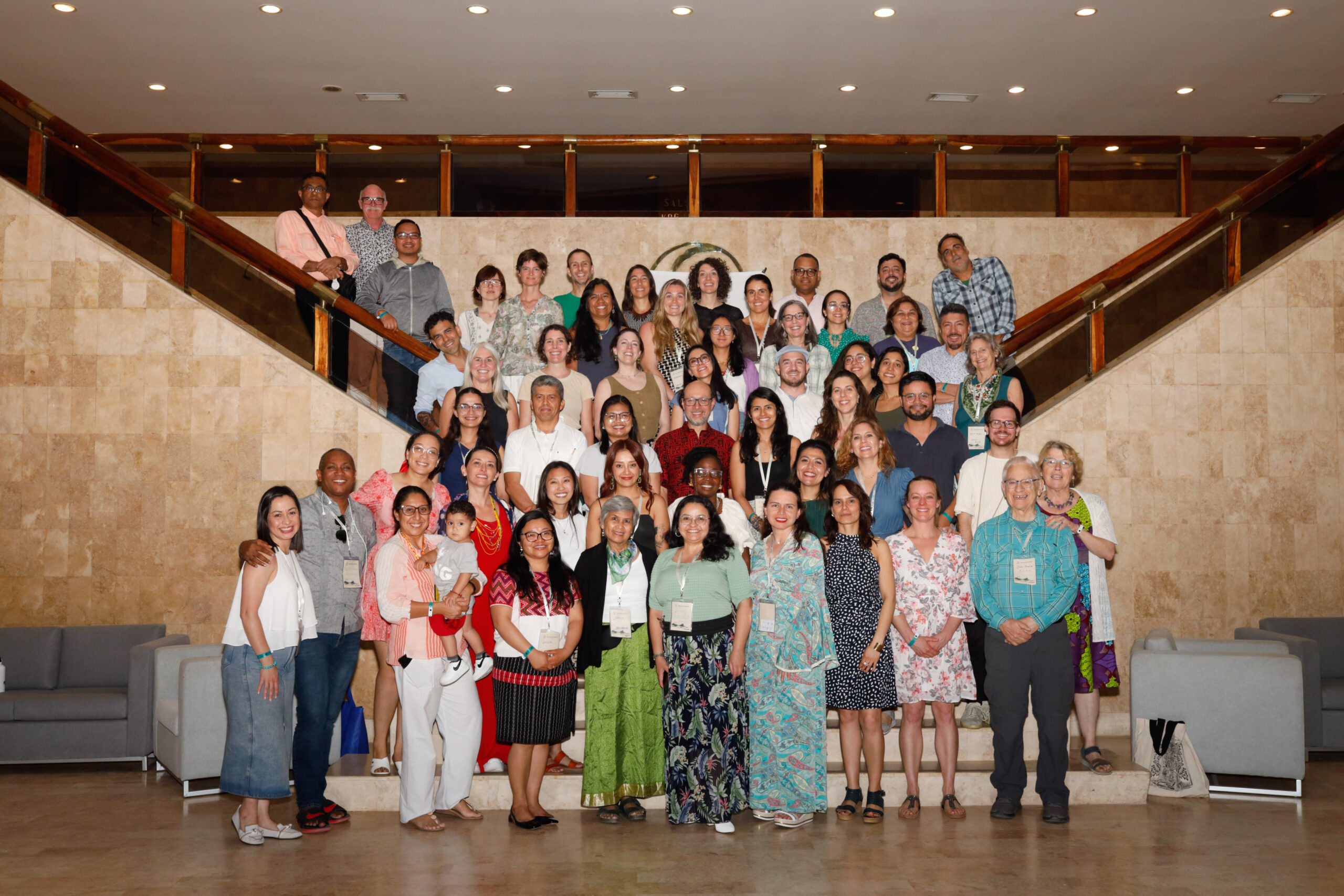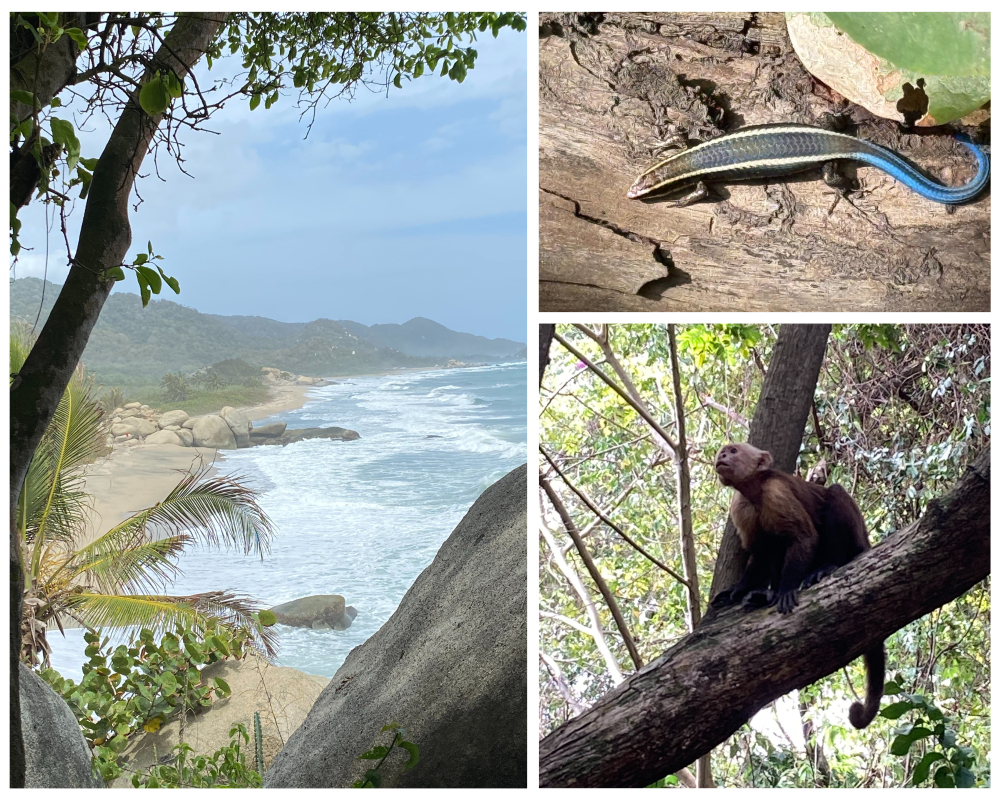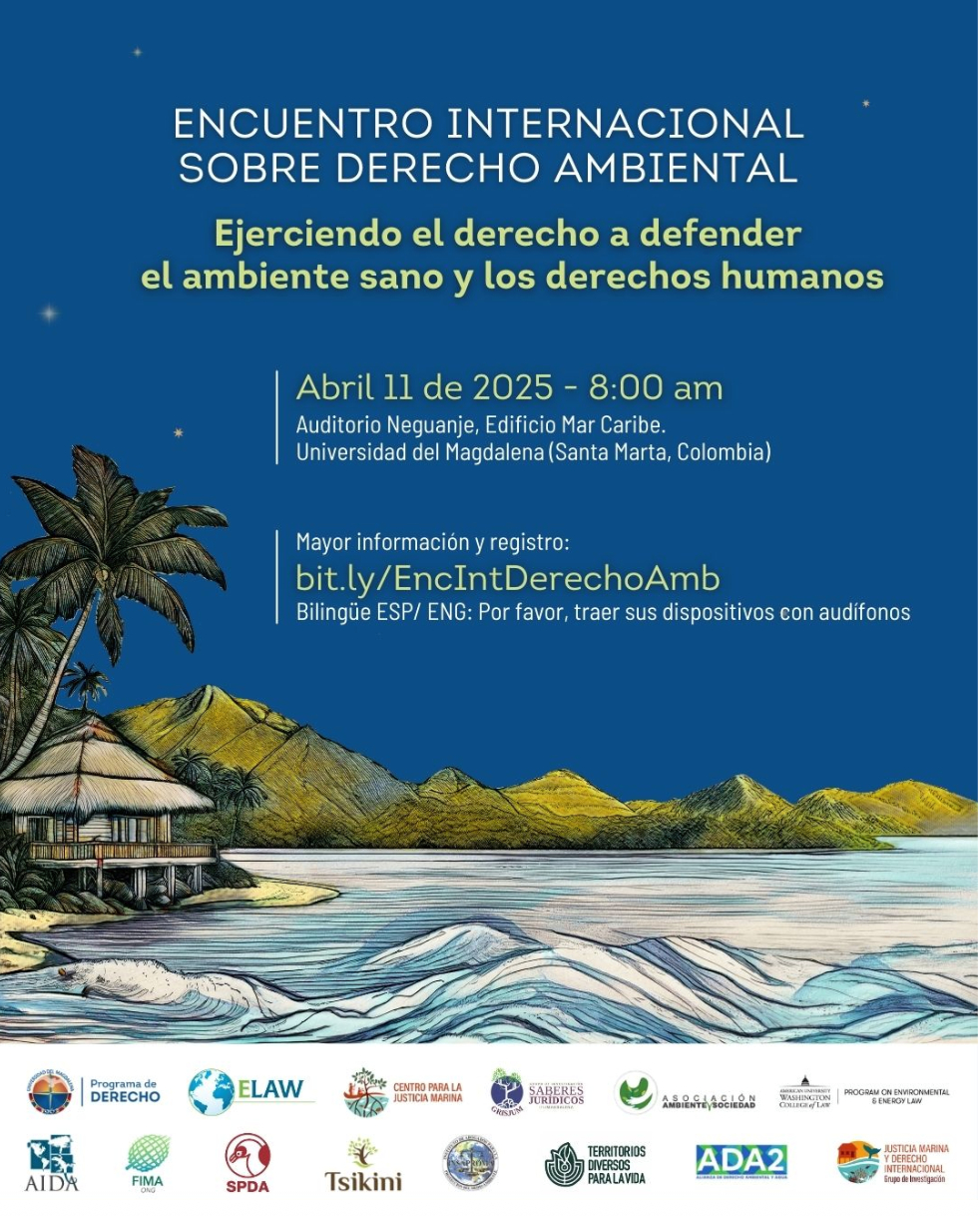Renouveler nos liens et notre engagement – Réunion annuelle de l'ELAW en Colombie

Plus de 60 partenaires d'ELAW se sont réunis le mois dernier à Santa Marta, en Colombie, pour la réunion annuelle 2025 d'ELAW, suivie de la réunion internationale sur le droit de l'environnement à l'Université de Magdalena.
Ce fut un formidable rassemblement pour notre communauté, et je repars avec un sens renouvelé de la mission, grâce à vous tous et à la force avec laquelle vous mettez votre amour en action pour la vie sur Terre. Continuons à cheminer ensemble dans cette tâche magnifique et extrêmement difficile qui nous touche. Je ne pouvais imaginer de meilleurs compagnons pour ce voyage.
-Ezio Costa Cordella, FIMA, Chili

Les séances plénières ont porté sur :
- Faire face aux menaces qui pèsent sur les défenseurs de l'environnement
- Protéger l'océan
- Cadres juridiques pour soutenir les droits de l'homme et la défense de l'environnement
- Extractivisme, changement climatique et transition juste
- Sécurité numérique
Les avocats de terrain ont collaboré au sein de groupes de travail sur de nombreux autres sujets, notamment la biodiversité, les rivières et les barrages, la qualité de l’eau, les droits des peuples autochtones, les droits de la nature et l’exploitation minière en eaux profondes.
La réunion annuelle comprenait une foire aux cas, permettant aux participants de présenter simultanément plusieurs affaires en cours. Des petits groupes ont discuté de chacune des huit affaires présentées afin d'en apprendre davantage sur les stratégies et de réfléchir à leur propre litige.

Pendant la Rencontre internationale sur le droit de l'environnement, ouvert au public et organisé à l'Université de Magdalena, les partenaires d'ELAW ont partagé les leçons tirées de leurs expériences de défense des communautés et des écosystèmes au Brésil, au Chili, en Colombie, en République dominicaine, en Équateur, en Égypte, au Mexique, au Pérou, aux Philippines, aux États-Unis, en Ukraine et en Uruguay.
Un grand merci aux incroyables hôtes et co-organisateurs colombiens, notamment Ana Lucía Maya Aguirre, Melany Velasquez Lozano et Yolanda Zamora Ayala de Centre pour la Justice Marina; Liliana Avila et María José González-Bernat à AÏDA; Vanessa Torres à Association Ambiente y Sociedad; et le professeur Isabela Figueroa à la Université de Magdalena, pour l'organisation d'une réunion aussi inspirante. Et merci à nos formidables bénévoles, Martine Coguiec et Madeleine Wendling, qui nous ont soutenus tout au long de la réunion !

Karen Guillory
Responsable de la sensibilisation
Alliance mondiale du droit de l'environnement

